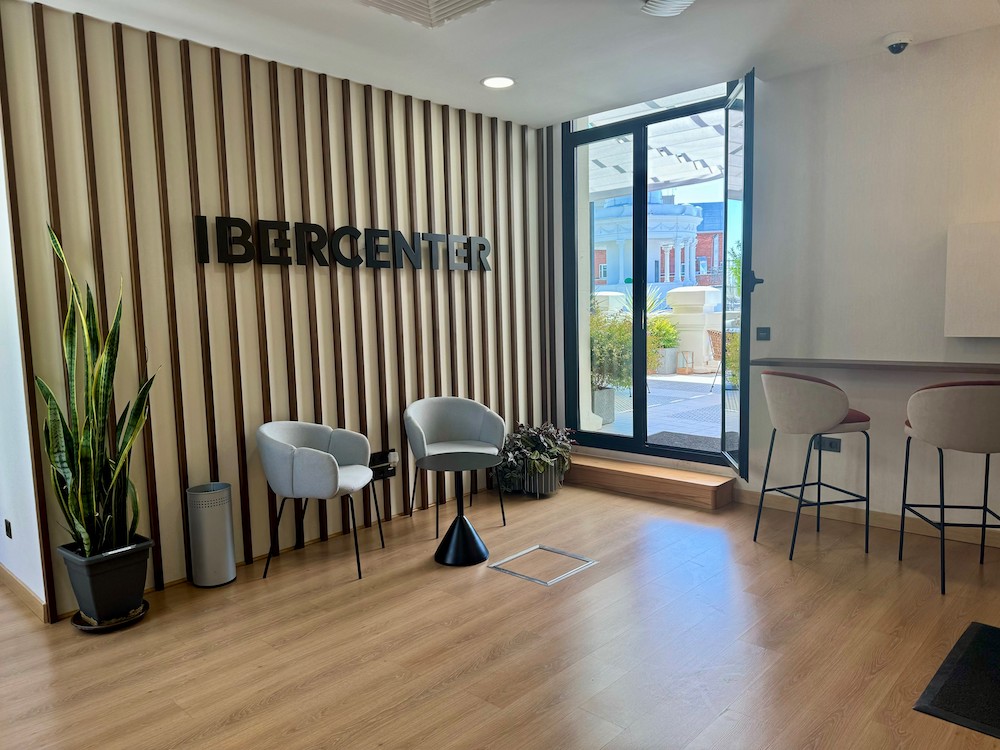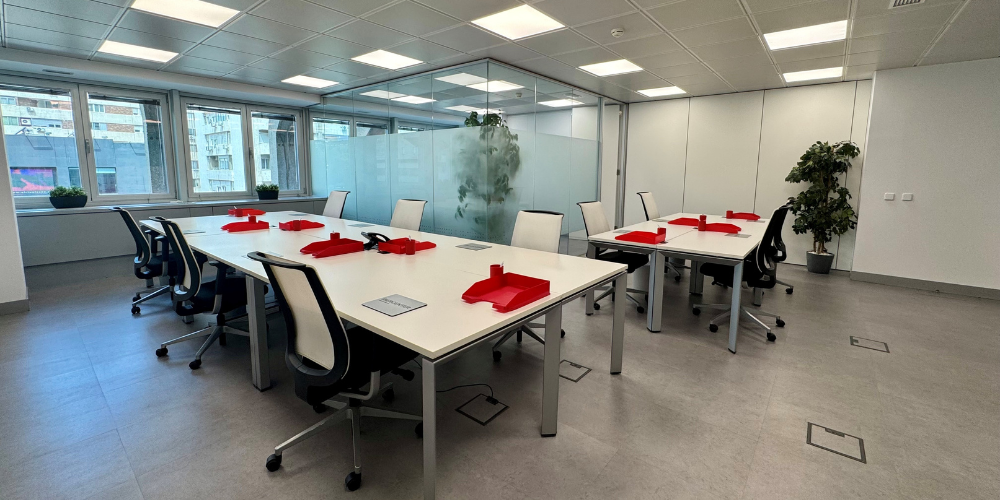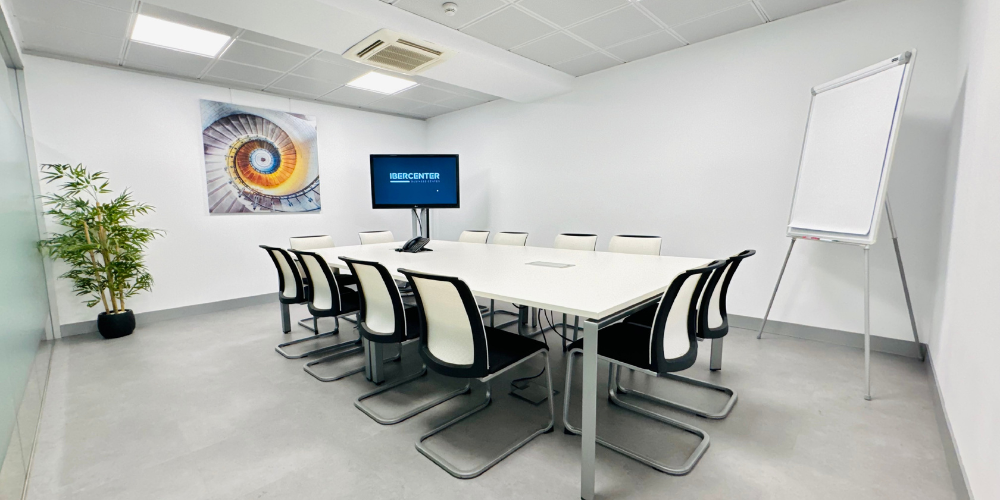Working from home has become a global phenomenon that has significantly transformed the way we work. While remote work existed before the COVID-19 pandemic, it was during this health crisis that its adoption accelerated exponentially. Companies of all sizes and sectors were forced to adapt quickly, implementing solutions that allowed their employees to work from home effectively.
Remote Work has proven to be a viable and, in many cases, preferable alternative to traditional face-to-face work. It has provided employees with greater flexibility and work-life balance and has enabled companies to reduce operating costs. However, this transition has also had a profound impact on the real estate sector, both in the office and residential sectors.
In the current context, where working remotely remains common practice even after the most critical moments of the pandemic, it is crucial to analyse how remote work has reshaped the real estate sector. The declining need for traditional office space has led to a redefinition of the use and demand for such space. On the other hand, the preference for housing that can accommodate a workspace has influenced the residential market, leading to changes in prices and availability of properties in different locations.

The impact on demand for office space
The impact of teleworking on the demand for office space has been remarkable, especially in large cities. With the mass adoption of remote working, many companies have significantly reduced their need to maintain large central offices. This has led to a decrease in the occupancy of corporate buildings and an increase in the availability of commercial space. The high costs associated with renting office space in metropolitan areas, combined with the reduced need for physical presence, have led many companies to return their office space or renegotiate their leases for better terms.
Simultaneously, there has been an increase in demand for flexible offices and coworking spaces. Companies are now looking for more adaptable solutions that allow them to adjust their space needs dynamically. Coworking spaces offer this flexibility, allowing companies to scale according to their requirements and avoiding the long-term commitments of traditional leases. In addition, these spaces provide a collaborative environment that can foster innovation and networking, benefits that are highly valued in today’s business environment. This has led to a proliferation of coworking centres not only in large cities, but also in suburban and rural areas, adapting to the preferences of workers seeking to avoid long commutes.
The adaptation of companies to hybrid models has been another significant consequence. Rather than returning to a fully face-to-face working model, many companies are adopting a hybrid approach that combines in-office work days with home-work days. This model allows companies to reduce their real estate footprint while maintaining a physical space where employees can meet for activities that require face-to-face collaboration. This trend towards flexibility is reshaping the office market, with a growing demand for spaces that can be used intermittently and are equipped with the technology to support agile, collaborative working. In short, remote work is leading to a redefinition of the office concept, adapting to the new realities and needs of the post-pandemic world of work.
The effects on the residential market
Working from home has had important effects on the residential market, starting with a marked increase in demand for housing outside urban centres. The possibility of working from home has allowed many people to rethink their place of residence, opting to live in suburban or rural areas where the quality of life can be higher and housing costs lower. This trend has led to an exodus of workers from large cities to quieter and more spacious areas, leading to an increase in demand for housing in these peripheral areas.
As a result, a strong preference has emerged for homes with dedicated workspaces. Buyers and renters are now looking for homes that include an extra room, a study or a space that can be adapted as an office. The functionality of these spaces is crucial to ensure a comfortable and productive working environment. This need has prompted builders and developers to reconfigure the design of homes, incorporating ergonomic and technologically well-equipped work areas.
Changes in demand have also affected residential property prices and availability. In suburbs and rural areas, housing prices have increased due to rising demand, while at the same time reducing the availability of properties. On the other hand, in large cities, especially in the centre, demand has decreased, leading to a stabilisation or even a reduction in urban property prices. Urban property owners and developers have had to adjust their strategies, offering incentives and renovating properties to attract potential buyers or renters seeking a living environment that combines the advantages of urban living with the facilities for working remotely.
In short, remote work has transformed the residential market, driving demand in suburban and rural areas, redefining desired housing characteristics and causing fluctuations in property prices and availability. This new dynamic is reshaping the real estate landscape, adapting to the changing preferences and needs of the modern worker.
The transformation of real estate spaces
The transformation of real estate is one of the most notable responses to the changes induced by remote work. The decline in demand for traditional office space has led to the conversion of many of these spaces into housing or other alternative uses. In cities such as Madrid, where office rental in Madrid was a booming industry, the pandemic has forced landlords and developers to rethink the use of their properties to maintain profitability. Many office buildings are being refurbished and adapted to serve as flats, temporary housing, or even community and cultural service centres. This trend not only addresses the oversupply of office space, but also helps mitigate the housing shortage in urban areas.
In addition to residential conversion, there is a growing trend to renovate and adapt real estate to meet new market needs. Companies that still require offices are looking for spaces that offer greater flexibility and functionality. This has led to a wave of office building renovations, where open-plan layouts, mobile workstations and collaboration zones are being implemented to facilitate hybrid working. Advanced technologies are also being incorporated to improve connectivity and energy efficiency, as well as health measures to ensure the safety and well-being of employees.
The renovation of spaces also extends to the creation of multifunctional environments that can change use according to demand. For example, some offices are being adapted to function as coworking spaces during the day and event or meeting centres at night. This multifunctionality maximises space utilisation and attracts a variety of users with different needs. In this context, property owners and managers in Madrid and other major cities are investing in the flexibility and adaptability of their properties to remain competitive in a constantly evolving market.
In conclusion, the transformation of real estate space is a necessary response to the changes in demand brought about by remote work. The conversion of office space into residential and other uses, together with the renovation and adaptation of space for new needs, is reshaping the real estate landscape. These initiatives not only address the current oversupply of office space, but also create opportunities to meet the demand for more flexible and functional housing and workspaces.
The future of real estate
The future outlook for the real estate sector is marked by long-term trends reflecting structural changes driven by remote work and new work dynamics. One of the most prominent trends is the growing preference for flexibility in the use of space. This need has strengthened the coworking space rental market in Madrid, where companies and freelancers are looking for options that allow them to quickly adapt to fluctuations in demand and new forms of hybrid work.
On the residential side, demand for housing outside urban centres is expected to continue to grow, as many workers have discovered the benefits of living in quieter and more spacious areas. This could lead to an expansion of real estate development in suburbs and rural areas, driving the construction of housing that integrates remote workspaces. At the same time, cities will have to reinvent themselves to attract residents back, probably by improving infrastructure, providing services and creating green and community spaces.
Room hire in Madrid is also booming, as companies are looking for flexible and technologically equipped spaces for meetings, events and training. These spaces are being adapted to meet new social distancing standards and offer safe and comfortable environments for users. Flexibility and the ability to quickly transform the uses of these spaces will be key factors in their long-term success.
However, these trends also present significant challenges. Converting offices to residential or other uses requires considerable investment and faces regulatory and logistical barriers. In addition, adapting buildings to meet new expectations for flexibility and technology can be costly and complex. Property owners and managers will need to be innovative and strategic to take advantage of these opportunities and mitigate the associated risks.
Another major challenge is economic uncertainty. The post-pandemic recovery may be uneven and slow, affecting the ability to invest in real estate. In addition, changing zoning regulations and environmental concerns will place new demands on developers and owners, who will have to balance profitability with sustainability and legal compliance.
In conclusion, the future outlook for the real estate sector is defined by a growing demand for flexibility and adaptability. Long-term trends point to an expansion of the coworking space rental market in Madrid and a further diversification of the uses of urban spaces. While there are significant opportunities, such as office conversions and the creation of multifunctional environments, there are also considerable challenges that will require innovative strategies and effective management to overcome.
Conclusion
The COVID-19 pandemic has accelerated the adoption of teleworking, leading to profound changes in the real estate sector. Reduced demand for traditional office space in large cities and an increased need for housing with dedicated workspaces have been among the most prominent effects. In addition, the preference for flexible offices and coworking spaces has transformed the market, driving the proliferation of these spaces in urban and suburban areas.
In the residential market, we have seen a noticeable shift towards suburban and rural areas, with an increasing demand for housing that can accommodate an efficient and comfortable working environment. The transformation of real estate space has included the conversion of offices to residential or other uses and the renovation of spaces to adapt to new needs, reflecting a trend towards multi-functionality and flexibility.
Looking ahead, remote work seems to have established itself as a viable and preferred option for many companies and workers. It will continue to influence the demand for real estate, encouraging the development of environments that can support both remote and hybrid working. Flexibility will be key in both coworking and residential spaces, and the rental market for coworking spaces in Madrid is expected to continue to grow, as well as the rental of rooms in Madrid for meetings and events.
The real estate sector faces the challenge of adapting to these changes with innovative and sustainable strategies. Investing in technology, re-evaluating the use of space and responding to new consumer preferences will be crucial to navigating this new landscape. While the challenges are significant, the opportunities for those who can anticipate and adapt to new trends are promising.
In conclusion, remote work has triggered a reconfiguration of the real estate sector that is likely to last well beyond the pandemic. Flexibility, adaptability and innovation will be essential for the real estate sector to thrive in this new context, offering solutions that align with the changing needs of businesses and workers.
Business centre in Madrid Ibercenter




